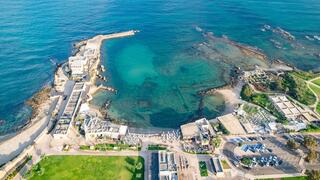
A flotilla of kayaks will be launched into Newcastle Harbour on Friday morning to protest coal exports after the protesters won an 11th-hour victory in the NSW Supreme Court overturning a government ban. Less than an hour before a marine exclusion zone for Newcastle Harbour was due to take effect, Justice Sarah McNaughton ruled on Thursday afternoon that the exclusion zone declared by the state government was invalid and had no further effect. The protest group, Rising Tide, is calling for an end to new coal and gas approvals, and the imposition of a 78 per cent tax on coal and gas exports to fund the energy transition.
Activists paddle in the Rising Tide protest last November. Credit: Luis Enrique Ascui Alexa Stuart, 21, one of the organisers and the plaintiff in the case, said she was “ecstatic” about the court victory, which “gave hope to young people that their voices matter”. Stuart said about 5000 people were expected at the week-long “People’s Blockade” on the Newcastle Harbour foreshore, with biggest crowds on Saturday.

Last year, the group blockaded the Port of Newcastle for more than 30 hours with kayaks, canoes, paddleboards and other watercraft. Newcastle is the largest coal port in the world and until this year was prohibited from competing with the Port of Botany on non-coal exports. Last year’s protest had approval from the police for the 30-hour on-water blockade, but more than 100 protesters deliberately stayed longer to be arrested and gain publicity for the cause.
Lydia Shelly, vice president of the Council for Civil Liberties, Zack Schofield of Rising Tide and Josh Lees of Palestine Action Group outside the NSW Supreme Court this month. Credit: Dominic Lorrimer This year the group applied to blockade the harbour for 50 hours but were rejected by police. The group appealed to the NSW Supreme Court two weeks ago but lost.
The exclusion zone would have banned members of the public from being on the beaches or entering the water in Newcastle Harbour from 5pm on Thursday to 8am on Monday. Without it, there is a general right to swim and kayak in public waters, but also an obligation to follow police directions. Under cross-examination earlier on Thursday, Stuart agreed that Rising Tide promoted civil disobedience and it was likely some protesters would break the law.
She said most attendees were “coming for a fun time and to make a statement about coal exports”, but she could not speak for thousands of people. “Civil disobedience is a tactic used throughout history, often successfully, to force social change,” Stuart said. “The Minns government can’t arrest their way out of the fact that people are freaked out about climate crisis and angry that the government is continuing to approve new coal and gas projects.
” The on-water protest is bookended by a week-long “protestival” event on the foreshore, with musical performances and activities such as “singing for climate” and “decolonising activism”. The City of Newcastle has approved the event. McNaughton said despite “skilful submissions from the minister”, a plain reading of the law was that NSW Maritime had exceeded its powers in declaring the zone.
She noted that the planned protest activities might still be unlawful and did not award costs. The NSW government was contacted for comment, including NSW Premier Chris Minns and Transport Minister Jo Haylen. Get to the heart of what’s happening with climate change and the environment.
Sign up for our fortnightly Environment newsletter..














